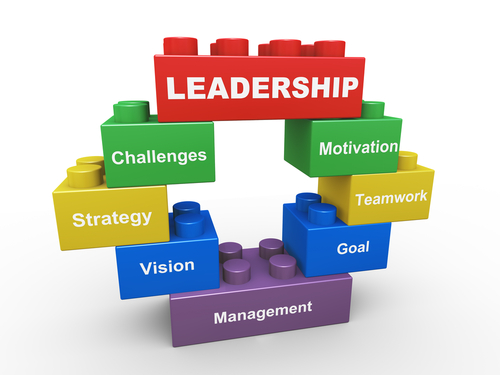You could be seeking into instances of leadership training if you want to train your leaders. In order to provide Singapore leadership training that meets those demands, it is essential to examine how different leadership styles and philosophies differ.
By enhancing the skills and knowledge of those who already hold leadership positions, Singapore leadership training and development also assists in identifying high-potential individuals who are likely to take on leadership responsibilities.
Depending on the issues facing your business right now, leaders may require training in both soft and hard skills. For instance, in order to take on their job, emerging leaders may need to improve abilities like listening, handling conflicts, and time management.
Senior executives, on the other hand, could require training to stay current with emerging trends and technologies like artificial intelligence and virtual reality so they can more clearly describe the company’s overarching strategy with executive coaching.
Why Invest in Leadership Training and Development?
Growth is the most persuasive argument. Your organisation will eventually stagnate if your executives are not dedicated to ongoing personal and professional growth. According to the Law of the Lid, the first lesson in John C. Maxwell’s book The 21 Irrefutable Laws of Leadership, the success of an organisation is constrained by the leadership skills of its members.
- Rapid globalisation: By 2025, developing economies will be home to most of the Forbes Global 2000 listed corporations. In order to manage teams across borders and override physical and cultural barriers, executives will need to acquire new abilities.
- Rise of remote employees: Within ten years, contractors and independent workers will make up half of the US workforce. In addition to learning how to manage scattered teams, leaders also need to understand how to motivate and inspire them.
- Generational differences: Gen Y (Millennials) and Gen Z are taking leadership roles and introducing fresh ideas for employment and education. It necessitates Singapore leadership training to bridge disparities and puts strain on conventional leadership practices.
The leadership gap, or the reality that businesses are having trouble filling leadership roles, is the third strong argument in favour of investing in educating leaders.
Five Models of Outstanding Leadership Education
So what are some effective cases of leadership development? Leadership cannot be quantified in zeros and ones or described in absolutes. A company’s culture may be used to gauge a leader’s performance. Is it a desirable place to work? Do individuals proactively look for employment there? Does the leadership of the organisation boost employee engagement? Are the company’s executives able to effectively convey the company’s values and produce desirable outcomes?
A great deal of expertise is necessary for this remarkable leadership. But it’s essential to keep in mind that leaders may be trained. If you’re seeking for leadership training examples, keep in mind that excellent leadership training requires some creative thought. Here are five instances of effective leadership development:
PARTICIPATING IN CONFERENCES TO DEVELOP INTERPERSONAL SKILLS
If you want outstanding leadership, you must invest in it. Part of that investment should include giving your leaders access to conferences that give Singapore leadership training in areas like decision-making or delegation. Any organisation that aspires to be an employer of choice looks to support this kind of comprehensive leadership development experience. This involves both a time investment and a money one.
Conference-based Singapore leadership training examples include breakout sessions, general conference presentations, and conference intensives, all of which provide your leaders the chance to network and hone their interpersonal and relationship skills.
STRATEGIC EXPOSURE: MEETINGS, CLASSES AT THE UNIVERSITY, AND WORKSHOPS
Your leaders must be accessible to the public, but with everything else on their plates, this may be a difficult task. strategically look for exposure chances for your leaders. As they lead initiatives both inside and beyond the firm, assist your leaders in becoming accustomed to the exposure needed.
By doing this, they become known throughout the organisation, and in turn, they engage with current leaders and gain knowledge from them. This public recognition encourages them to continue to develop and contribute to the business.
Giving your leaders instruction in public speaking and chances to practise it is an example of leadership development via strategic exposure. This can entail making presentations to staff, board members, and other leaders.
MICRO-DEVELOPMENT TRAINING THROUGH COACHING & MENTORSHIP
Many businesses now use micro-mentoring as an example of leadership development to provide their leaders the chance to get guidance from a more seasoned team member. People who are selected or employed as micro-mentors offer advice to younger leaders in a programme with time- and goal-specific objectives.
Mentors use their knowledge or area of expertise to concentrate on critical advancements. Leading activities, community service projects, and workshops are now a component of the business’ commitment in employee development and leadership facilitation thanks to these micro-mentorship programmes.
AUTHENTIC E-LEARNING
Another type of leadership training is interactive eLearning, which has increased in popularity and effectiveness as teams – and their leaders – have become more and more geographically varied. Employers of choice are aware that offering standardised leadership training throughout the company strengthens the bond between their leadership team members. Look for eLearning that gives leaders the soft skills they need to encourage, support, and strengthen teams.
This illustration of leadership training covers a range of subjects and learning preferences, and includes video, interactive quizzes, downloadable content, and the option to “theme” the Singapore leadership training, for the entire business. With the ability to review what they’ve learned as needed, interactive eLearning may give your leaders a more memorable approach to hone their leadership abilities.
TRAINING FOR COMMUNITY INVOLVEMENT
The process of being a sought-after employer doesn’t end when your executives leave the office for the day. There is no greater example of leadership training if you want your leaders to have the expertise necessary to motivate others. Give the chance for leaders to donate their time. Even paid time off is frequently provided by employers for community service.
Your leaders receive practical experience in making informed decisions, networking, and resolving urgent concerns by volunteering with neighbourhood groups. When the objective is attained, having a shared sense of a larger purpose makes the entire company feel accomplished. Who wouldn’t want devoted, enthusiastic, and content leaders?
Conclusion
Make sure you’re defining what outstanding leadership looks like in your organization’s culture before searching for the best leadership development options. Your leaders won’t be able to exhibit the attributes your organisation values until you discuss what a good leader looks like and express it. Give them the time and room to reflect about the qualities great leaders of today require. Give children the chance to showcase their own leadership skills and let them take satisfaction in being a part of the creative process.


